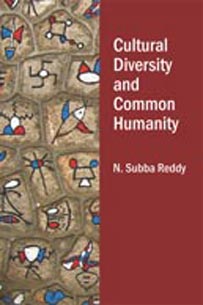 A4
A4

Hard-cover
•
2014
Pages: 528
ISBN: 9789332700345
INR 1495.00

This volume comprises the collected work of the noted anthropologist, Professor N. Subba Reddy. At the end of 60 years of academic life, during which the author attended or organised a number of conferences and symposia—both at the national and international levels, delivered some endowment lectures and key-note addresses, and published a number of papers at home as well as abroad, he chose to bring out this collection of 30 papers, organised into three sections.
The first section reflects on what light anthropology can throw on the larger concerns about humanity as a whole, such as:
– the interactions between biological and cultural processes,
– human motivations and their socially approved fulfilment,
– the widening of human horizons culminating in globalisation,
– common human rationality in the midst of cultural diversity, and
– interactions between generic human nature and environmental
forces.
The second section comprises critical essays on some important theories and issues which no student of anthropology or sociology can afford to overlook.
The third section looks at certain ethnographic studies conducted by the author, each representing an important facet of social, economic, political or religious life among the tribal and rural communities. They combine sound field observations with an appropriate theoretical analysis.
Here is a remarkable tour de force from one of India's senior most anthropologists. Unlike many practitioners of textbook writing, Professor Reddy has chosen to divide the volume innovatively in three compact sections ranging from epistemology and methodology to critical essays on contemporary theories and vignettes of grounded ethnography. The inventory of themes is at once encyclopaedic and kaleidoscopic: function, meaning, cultural variability, relativism versus universalism and globalization followed by theories of Levi-Strauss and Dumont, cultural materialism of Marvin Harris, critique of Geertz and the debate between Margaret Mead and Derek Freeman. The last section tackles from a fieldwork perspective burning issues like naxalism, developmental hurdles, farm-size and productivity, and the changing functional interdependence between castes in village India. All in all, the book would remain a valuable summum bonum of the author's outstanding contributions to Indian anthropology and to the discipline in general.
— Ravindra K. Jain
Former Professor of Anthropology and Dean, School of
Social Sciences, Jawaharlal Nehru University, New Delhi.
Professor N. Subba Reddy is a key figure in the modern history of Indian anthropology, not only because of his own research contribu-tions, but also by virtue of his roles in academic leadership. The present volume, which collects together 30 highlights from his long and distinguished career, brings fully into focus how prolific he has been as a scholar, and also underlines the astonishing range of his intellectual and research interests. In his own synoptic profile to the volume, Professor Subba Reddy provides a fascinating reconstruction of this intellectual journey that has occupied him over six decades. It is a delight to find this immense body of work collected together for the benefit of contemporary students and researchers alike.
— Anthony Good
Professor Emeritus; Professorial Fellow - Social Anthropology,
School of Social and Political Science, University of Edinburgh, UK.
N. Subba Reddy completed his MA (1946-48) and PhD (1952) at Lucknow University. For his PhD, he was awarded the Bonnarjee Research Prize.
He joined the post of Deputy Director of Kanpur Social Survey (a Planning Commission project) under the directorship of Dr D.N. Majumdar, and their report was published in 1960 under the title “Social Contours of an Industrial City”; it was later re-printed in America in 1975. He joined Lucknow University as Lecturer in 1956. He handled the PG courses in anthropology at Gauhati Univerity (1957) and was in-charge of Centre for Tribal Research. He was instrumental in organising the Department of Anthropology at Andhra University (1960) and was with the Department, initially as Reader and Head of the Department and later as Professor (1961-76). He was closely associated with all the committees for the starting of anthropology at SV University, Tirupati. During the year 1970-71, he was a visiting senior fellow at the University of Illinois. In 1976, he moved to Madras University to start PG courses in anthropology. He also helped Tamil University to start a Centre for Tribal Research at Ooty, and he served on the committee to select the first team of teachers in anthropology at Calicut University (Kerala) and later helped to consolidate the courses there by delivering some lectures in the initial years. After his retirement at Madras University, he was invited by Centre for Economic and Social Studies, Hyderabad, for commencing research work on the tribal problems of Andhra Pradesh and continues to be an honorary professor in the institution.